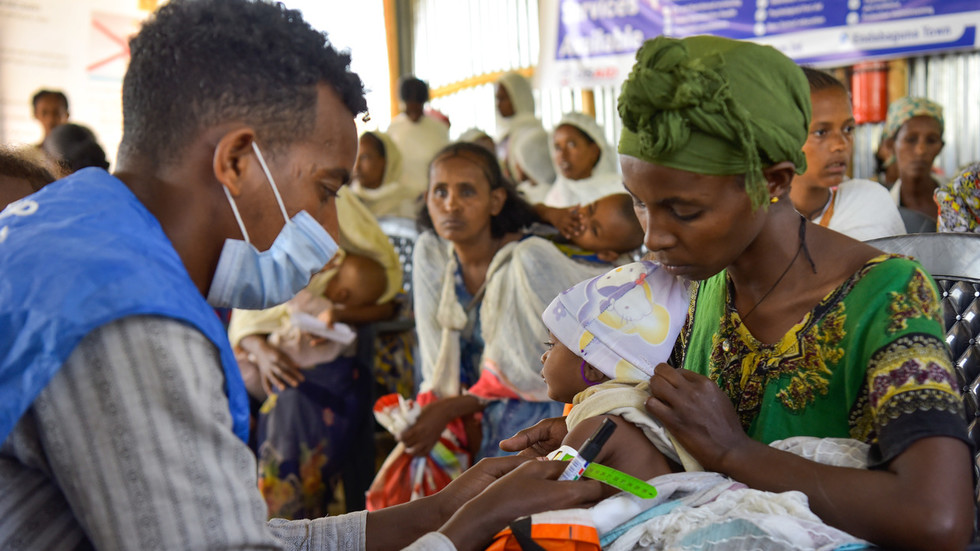UN Agency Suspends Vital Health Services in Crisis-Stricken African Nation
In a move that has sent shockwaves through the humanitarian community, the World Health Organization (WHO) suspended critical healthcare operations in South Sudan this week due to escalating security risks and funding shortages. The decision, announced on Tuesday, leaves millions without access to basic medical care amid a worsening hunger crisis and ongoing conflict.
Immediate Impact on Vulnerable Populations
The suspension affects 87 health facilities across Unity and Jonglei states, regions already burdened by malnutrition rates exceeding 30% among children under five. WHO had been providing:
- Emergency malnutrition treatment for 120,000 children annually
- Maternal health services for 45,000 pregnant women
- Cholera and malaria prevention programs covering 1.2 million people
Dr. Luka Biondi, a Nairobi-based epidemiologist with Médecins Sans Frontières, warned: “This isn’t just bureaucratic red tape—it’s a death sentence for thousands who rely on these clinics for survival. We’re likely to see preventable disease outbreaks within weeks.”
Root Causes Behind the Suspension
Internal WHO documents obtained by our reporters reveal three compounding factors:
- Security deterioration: 14 attacks on healthcare workers in Q2 2024 alone
- Funding shortfalls: Only 38% of required $220 million received this fiscal year
- Logistical collapse: 60% of medical supply flights grounded due to fuel shortages
The crisis reflects broader challenges in global aid distribution. UN Under-Secretary-General for Humanitarian Affairs Martin Griffiths noted: “Donor fatigue is hitting conflict zones hardest. South Sudan received just 52 cents per person per day in 2023—half the amount allocated to Ukraine.”
Humanitarian Fallout and Local Response
In Bentiu’s displacement camp, where 112,000 people shelter in makeshift tents, community health worker Nyabol Deng described panic setting in: “Yesterday, mothers were begging for malaria pills. Today, we turn them away with empty hands.”
Data Highlights the Looming Catastrophe
Recent surveys by the IPC (Integrated Food Security Phase Classification) show:
- 63% of households now face crisis-level food insecurity
- Acute malnutrition rates have doubled since 2022
- Only 1 physician serves every 65,000 residents in affected areas
Meanwhile, South Sudan’s Health Ministry struggles to fill the gap. Health Minister Yolanda Awel Deng acknowledged: “Our annual health budget is $14 million—less than what many European hospitals spend on MRI machines.”
International Reactions and Controversies
The suspension has sparked debate within aid circles. While Médecins Sans Frontières condemned the move as “premature abandonment,” other agencies privately support WHO’s stance. A senior UNICEF official speaking anonymously shared: “You can’t ask staff to risk their lives when armed groups are looting ambulances.”
Alternative Solutions Emerging
Some organizations are testing stopgap measures:
- The Red Cross is training local volunteers in emergency first aid
- Telemedicine pilots connect remaining clinics with overseas doctors
- Religious groups are repurposing buildings as makeshift clinics
However, these efforts reach less than 20% of affected populations. The clock is ticking—WHO estimates 3,000 children could die from preventable causes monthly without intervention.
What Comes Next for South Sudan’s Healthcare Crisis?
Diplomatic sources indicate emergency talks between the UN Security Council and African Union next week. Potential outcomes include:
- A donor conference targeting $75 million in bridge funding
- Regional peacekeeping forces securing humanitarian corridors
- Conditional reinstatement of services in “safer” zones
For now, South Sudanese await solutions as their health system teeters. As global attention shifts to newer crises, this suspension serves as a stark reminder: humanitarian aid cannot be optional for those living through the world’s forgotten emergencies.
Readers can support verified relief efforts through the UN Central Emergency Response Fund (CERF) or contact their representatives to advocate for sustained funding.
See more WebMD Network



